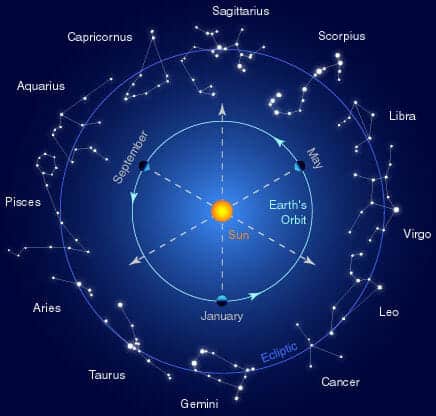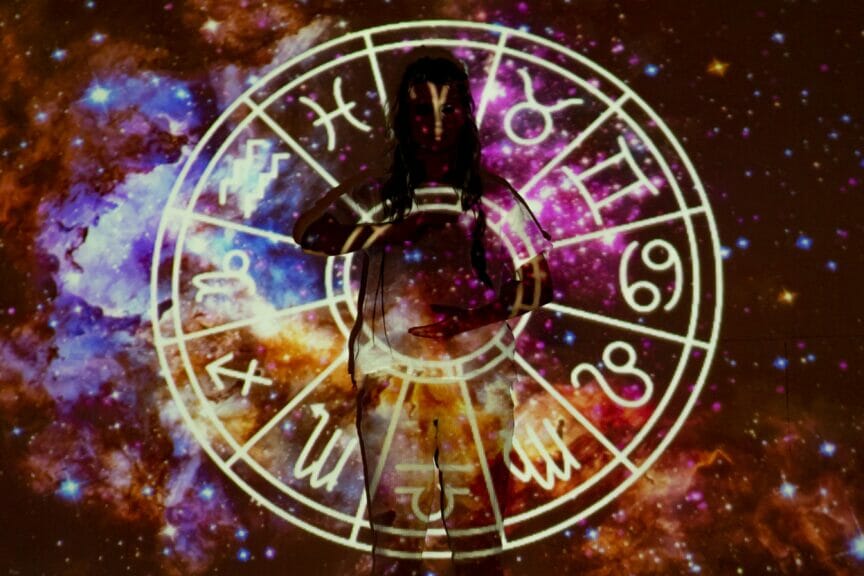Coming from the Babylonians in 1800 BC, astrology is as popular as ever. Today, this cultural phenomenon plays a huge role in self-expression, the voice of fate, and how we interpret that pretty solar system up above.
With the birth of astronomy, astrology emerged alongside it.
Astrology finds a meaningful connection between the activity of the sky and our lives as we know it.
From the widely known zodiac signs and horoscopes to crystals and tarot cards, astrology is everywhere nowadays. This is likely due to the rising obsession with spiritual wellness and the peace of mind astrology can offer. But beyond personal use, people have started using astrology to understand others in various settings. It’s such common knowledge that some use astrology for hiring practices or even online dating.
The astrological presence is so notable that it makes you wonder: where did this all come from? Who determined the zodiac signs and compatibility between them? Who writes the astrology reading I get every morning?
Point of Origin
Most people, even if they don’t believe in it, know their zodiac sign because that’s where it starts. Babylonians developed the first organized zodiac system from constellations and celestial activity.

The zodiac is a belt in the region of the Earth’s orbit around the sun, as shown above. The belt contains the 12 constellations key in our solar system, and the signs are split to show the time the sun will be in each constellation’s sphere.
Each constellation supposedly takes up one-twelfth of the belt, but the sizes and locations have varied over time. It’s sure changed since the Babylonians first derived each sign and their respective traits, thus one of the reasons astrology is tricky to test and validate.
But back to how they developed this system, their polytheistic religious beliefs heavily inspired the structure of astrology. In particular, the belief was that the Gods were related to the planets, sun, and moon. They fixed their lives and forecasts on this notion, resulting in the connection between their Gods’ work and the human experience.
The more they studied led to developing their daily horoscope. By tracking major astrological events and everything’s positioning, astrologers could then infer the future.
And that’s it. The history of the zodiac and everything that came after started in the first Millenium but has successfully rolled over into the 21st century. True astrologers do continue to write daily horoscopes and all the astronomical content you read; the only thing is that a true ‘astrologer’ could mean a licensed professional to anyone with an interest and time to learn.
How Do Scientists Look At It
Let’s cut right to the chase–there is no reported scientific evidence to support astrology. While yes, the positioning of the stars is a study on its own, there’s no hint that it affects our lives and who we are.
Experienced astrologists base their practice on it simply being unexplainable. But, one of the most famous studies curious of testing astrology’s validity was conducted by Shawn Carlson, an 80s U.C. Berkeley alumni. The objective was to determine whether the sampled astrologers could correctly match over 100 birth charts to their corresponding types. The results proved that the astrologists were no better than just leaving it to guessing and chance; only a third of the birth charts were correctly matched.
So all in all, no, it’s not scientist-approved.
But Astrology says, “This Is Your Sign”
Life is so peculiar that it’s no wonder many turn to astrology to answer their most pressing questions. But leave it up to human psychology to explain why the belief exists so passionately:
Just like the Barnum effect explains, astrology depends on generalization and the point of uncertainty. Ultimately, it works as a placebo: we read what was given and choose what we accept as real. If there’s fear of the unknown, vague horoscopes with flashy words that could fit anywhere will soothe that fear. Even if we have to cherrypick through the descriptions to make them fit us, we believe because we want to.
In terms of practicing or abandoning astrology, you can decide that. As Carlson puts it, “People believed in astrology for thousands of years, and no doubt will continue to do so no matter what scientists discover. They are entitled to their beliefs, but they should know that there is no factual evidence on which to base them.”






